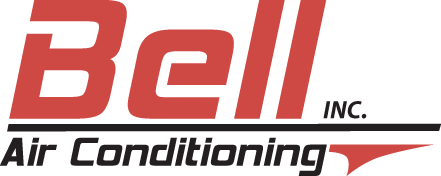
Big changes are on the horizon for the heating and cooling business! Cooling systems transitioning from R-410a to newer refrigerants like R-454B refrigerant and R-32 refrigerant will be implemented in 2025. These new coolants are developed to be more beneficial to the environment and meet updated regulations about global warming. But what does that mean for your present HVAC system and upcoming services?
This change will reduce the environmental footprint of our air conditioning systems. Starting with 2025, new AC systems will employ a a different class of refrigerants that more closely match with climate goals. If you're thinking about getting an AC replacement soon, this is the opportune time to investigate how these new refrigerants can impact your home's comfort.
Why Are They Phasing Out R-410a for New HVAC Refrigerant?
For a long time, R-410a was the standard refrigerant for residential air conditioners because it worked so well. But studies uncovered that R-410a still negatively impacts global warming. Because of this, the Environmental Protection Agency (EPA) established a plan back in 2021. The industry will gradually phase out R-410a to introduce refrigerants that are more eco-friendly.
The HVAC industry has implemented transitions like this before. When the industry phased out R-22 (commonly called Freon) to R-410a, homeowners like you had to adapt. And in the same way, this transition will affect how systems are engineered as well as the recommended procedures for HVAC maintenance. Both property owners and HVAC technicians should plan for these new refrigerants if they want to continue enjoying the safest, most economical cooling possible.
What Refrigerant Is Replacing R-410a?
The coming refrigerants are categorized under the new "A2L" classification and contain the newest R-454B refrigerant and R-32 refrigerant coolants. They're developed to deliver the same powerful cooling while significantly reducing their global warming potential (GWP) compared to R-410a.
R-454B refrigerant is expected to be especially useful due to its GWP being approximately 78% lower than R-410a. While R-454B refrigerant is technically more flammable than R-410a, improvements to system configurations and maintenance practices will ensure servicing is just as safe to perform. Additionally, today's cooling systems using R-454B refrigerant are significantly more energy efficient, contributing to big savings on energy bills over time, especially if you stay on top of routine HVAC maintenance.
This transition isn't just about changing the refrigerant—it impacts the whole HVAC system because the properties of R-454B refrigerant make it not suitable for use in older systems. Ultimately, every home and business using R-410a will be required to transition to one of the new systems.
R-410a Replacement: What Should I Consider in Order to Make the Shift to New HVAC Refrigerants?
Changing to the new refrigerants isn't as simple as swapping out the new coolants with what's used in your home's HVAC system. That's because the distinct properties of R-454B refrigerant and R-32 refrigerant mean you can't use them in a system that uses R-410a. But rest assured—you can still use your current R-410a system for now. Just keep in mind that as time progresses, the expense of repairs and tune-ups will go up as R-410a becomes scarcer.
Planning ahead is the optimal way to handle things. If your AC system is already aging, this is the ideal time to contemplate switching to a newer model that uses the new R-454B refrigerant. Plus, the HVAC specialists here at Bell Air Conditioning Inc can support you with making the transition with flexible options for HVAC replacement financing.
Which HVAC Refrigerant Is in My Air Conditioner?
Unsure which refrigerant your AC system utilizes? In general, you can easily learn this information by examining the label on your outdoor unit. This label displays the type of refrigerant, the model number and many other specifications about your cooling system.
But if you have difficulty reading the label or are missing your user manual, remain calm! You can always call one of the skilled technicians at Bell Air Conditioning Inc to assist you in identifying the refrigerant. Get all the info you need by reaching out at 254-307-9572.
